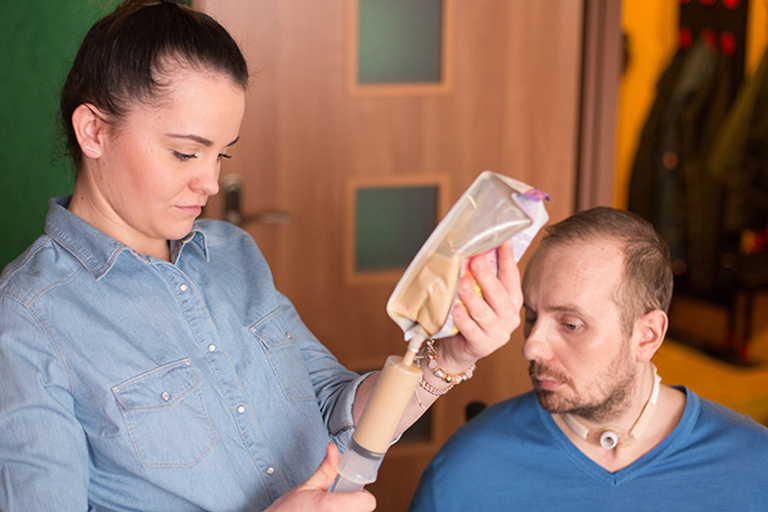Dysphagia and Stroke

A stroke is distressing for both the patient and their family. It is caused by a disruption of the blood supply to a part of the brain, either by a blood clot (most common) or a weakened blood vessel. Strokes can result in problems with movement and balance, as well as swallowing difficulties, also known as dysphagia. Dysphagia, which occurs in around half of stroke patients, can also be brought on as a side effect of the treatment of some forms of cancer, as well as neurological disorders such as dementia, Parkinson’s disease, multiple sclerosis and other conditions. It can not only be an uncomfortable and sometimes painful condition, but also potentially a dangerous one, with patients at risk of choking and lung problems, including pneumonia.
The role of nutrition
Swallowing difficulties can lead to increased anxiety at mealtimes. The risk of drinks or food “going down the wrong way” leads to loss of enjoyment when eating or drinking with patients reducing their fluid and food intake out of worry. The levels of malnutrition and dehydration in stroke patients is high and can affect the recovery process.
It is important that stroke patients have their nutritional ‘risk’ assessed by a qualified healthcare professionals and, if necessary, appropriate nutritional management put in place to improve the chances of recovery.
An effective and widely used way of managing dysphagia is to change the consistency and texture of food and drinks. This makes it easier and safer for people with swallowing difficulties to control their swallow, significantly reducing the chance of food or fluids entering the lungs, and ensuring they get the nutrition they need.

Related Products

